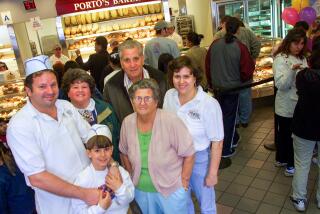Miami reacts to Obama’s Cuba move: Tears of joy, cries of ‘traitor’

Residents of Miami discuss prospects of new U.S. relationship with Cuba.
A tale of two restaurants unfolded in South Florida on Wednesday.
In Miami’s Little Havana, Versailles Restaurant hosted hard-line Cuban exiles railing against President Obama’s decision to establish full diplomatic ties with the Cuban government. They waved placards and hurled insults bilingually, putting on the show they’ve been rehearsing and staging for half a century.
The show at Versailles involved megaphones and pickup trucks, national news outlets parked in front of a spot that serves tasty espresso, and a handful of outspoken Cuban Americans who yell loud enough to scare viewers in Nebraska. Whenever major news breaks about Cuba, the media flocks to Versailles to take the pulse of the Cuban community.
Meanwhile in Hialeah, a city with a far larger number of Cubans and Cuban Americans than Little Havana, Tropical Restaurant served cafeteria-style meals to a quieter, more sanguine crowd. Here, many welcomed Obama’s decision.
“It’s going to be better for the Cuban people. It’s going to be better for the United States,” said Reinier Oropeza, 33, an accountant who to came to the U.S. from Cuba in 1998.
Many Cubans here are young, or came to the United States more recently, or have closer ties with their families in Cuba.
Oropeza said many older Cubans are stuck in the past. “They are old and they stand back and blame Castro. They already did what they had to do. So young people have to take over now.”
A few miles away at Versailles, those are fighting words.
While media outlets from around the world interviewed angry exiles, a man cruised up and down southwest 8th Street -- which is known only as Calle Ocho around here -- in a Toyota Tundra with a loud megaphone and a message in Spanish: “We’ve been betrayed by the Democrats. This is a day of infamy for Cubans!”
That inspired air-conditioning repairman Miguel Saavedra to ditch his civil demeanor, if only for a few seconds, to let loose on Obama.
“Obama is a traitor,” he growled, his poster wrinkling under white-knuckle rage. “Obama is a coward!”
Saavedra ditched work to protest, saying he risked getting fired to have his voice heard.
It’s no surprise that some Cuban Americans are passionately opposed to any conciliatory gestures toward Cuba. What is surprising, and what has happened over the last two decades, is a major shift in attitude among many in the Cuban American community. Today, younger Cuban Americans are more likely to vote for Democrats and oppose the embargo of Cuba. That shift has been felt in national politics.
Analyses of the 2012 presidential election results showed that almost half of Cuban Americans voted for Obama. That same year, Joe Garcia became the first Cuban American Democrat to be elected to Congress from South Florida.
Obama, Garcia said, “opted for dealing with the Cubans of the future, not the Cubans of the past.”
Regino Rodriguez, 77, owns Tropical Restaurant in Hialeah. He once had a hard-line view on U.S.-Cuba policy. But over the years, his restaurant welcomed newly arrived Cubans to work as servers and cashiers, and his opinion evolved. He said he saw how those workers struggled to help family on the island because of remittance limits. And when an employee lost a loved one in Cuba, he or she often couldn’t travel there for the funeral because of U.S. policy.
“There will be now be more closeness, more communication between us and them, and that’s what we need, to be closer to our families, to be able to hug the loved ones we have over there who are experiencing hunger, need, misery,” Rodriguez said.
More than a few local elections in Miami have been decided by debates on Cuba: Who has the tougher stance? Who hates Fidel Castro more? Miami Mayor Tomas Regalado, who spent his career as a staunchly anti-Castro radio commentator, made the mandatory appearance at Versailles around noon.
The media immediately swarmed him. He toggled between Spanish for a Colombian television crew and English for the national press corps.
“Cuba needs a new government. Cuba needs a free election,” Regalado said. “You can’t expect that this will mean that Cubans will be able to march down the streets of Havana chanting ‘down with the tyranny’ without being attacked by the groups of the state security.”
Around that time in Hialeah, Damarys Marante, 64, sat in front of the television in her house, her elderly mother by her side, to listen to Obama’s announcement.
“My mom and I were jumping and crying and so happy,” Marante, a retired beautician, said later outside Tropical Restaurant. There were no placard-waving protesters, no media horde.
Marante had just stopped by a Western Union to wire $200 to her aunt and uncle in Cuba. When she called them to confirm they received the money, they told her they had heard the news, or chisme, as Cubans call gossip.
“We were celebrating in the kitchen when we heard the news,” she said. “We were wishing that my father was alive to be able to live this.”
More to Read
Sign up for Essential California
The most important California stories and recommendations in your inbox every morning.
You may occasionally receive promotional content from the Los Angeles Times.






